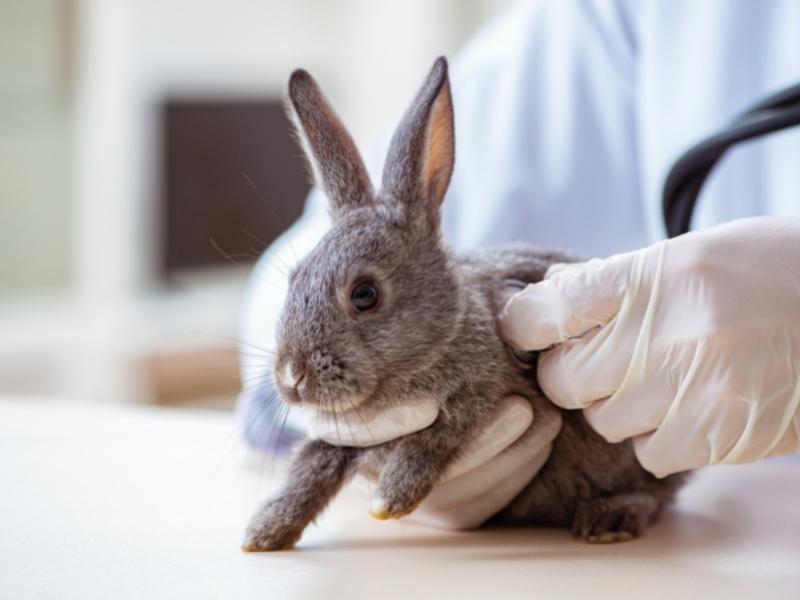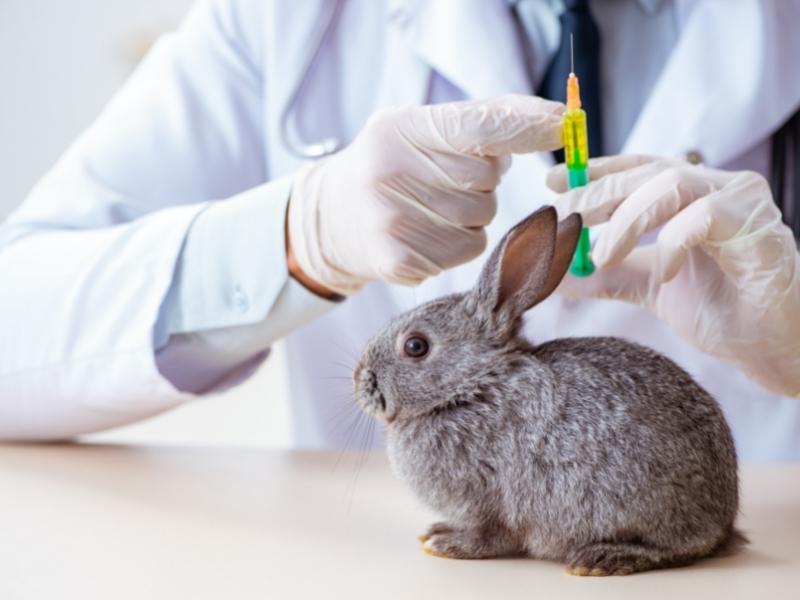There’s a reason the saying is “breed like rabbits.” Not spaying or neutering your rabbits means you could have 4 million rabbits over a 4 year period. Just a little too many rabbits for your house or yard, right?
There are other benefits to neutering or spaying your buns, but how much does it cost to spay or neuter your rabbit?
On average, it will cost you about $205 to get your rabbit neutered or spayed in the U.S. What you end up paying for this procedure varies widely: spaying a doe costs 10%-25% more than neutering a buck, and factors like your location, the rabbit’s health, and added services can push up the price.
Want to know more about spaying and neutering your pet rabbits so you are as prepared as possible? Continue reading.
Average Medical Cost of Spaying a Rabbit
Expect to pay around $205 to get your rabbit neutered or spayed; however, the average cost is $275.
Male rabbits (bucks) get neutered, and this procedure is less invasive, so it costs less than spaying a female rabbit (doe).
In more rural areas, you can pay as little as $75 to get your rabbit altered, while other rabbit owners have reported paying as much as $600 or more.
Factors That Affect Rabbit Spaying Cost
The rabbit spaying or neutering cost varies depending on different areas of the country, the overall health of your bunny, added services, and more:
Location
How much you pay to spay or neuter your female or male rabbits depends on where you live or where you take the buns to be altered.
Taking your rabbit for the surgery to a veterinarian in a more rural area will cost less than going to a vet or fancy clinic in the city.
Health Complication
If there are any unforeseen health complications during the surgery, the cost of spaying or neutering your rabbit will increase.
Added Services
Some vets add services like extra pain medication, a full blood panel workup, and more to the spay or neuter procedure. All of these cost extra.
Sometimes, vets will also fix other health issues like problems with your rabbit’s teeth or digestive tract while your bun is under anesthesia.
Ideally, the vet should check out your rabbit for additional health issues before the surgery so you can approve the cost and work before it’s done.
Things You Need to Prepare to Spay a Rabbit

There are a few things you need to prepare for pre-surgery when your rabbit is being spayed:
Don’t Change Your Rabbit’s Diet
Unlike people, rabbits don’t need to fast before surgery because it is dangerous if their digestive tract slows down. So keep feeding your rabbit as you usually do.
Plastic Cages With No Holes at the Bottom
When you take your rabbit to the vet, place them in a rabbit-carry cage with no holes at the bottom. You may also want to keep your rabbit separate from other rabbits for a few days after the surgery so they can recover in peace.
Food Bowls
Your rabbit should be chewing on fresh hay right until they are taken in for surgery.
Bring your rabbit’s normal food in marked food bowls or containers to the vet. This should be the leafy greens, veggies, treats, and pellets you feed your bun. After surgery, your rabbit should eat or nibble on some food.
Bonded Rabbit
If you’ve bonded your rabbit with another rabbit, you want to bring the bonded friend with you to the vet.
A friendly rabbit face will help keep your bun calm, and minimize stress pre, during, and post-surgery, which is essential to help with the recovery process.
Water Bowls
Your rabbit should always have fresh drinking water so bring this with your bunny to the vet.
Should You Spay Your Rabbit?
Spaying or neutering your fluffy long-eared bestie depends on:
- The age of the rabbit
- How healthy the rabbit is
- If you want the rabbit to breed
- If you want to increase the lifespan of your rabbit and get some other benefits that come with neutering or spaying your pet rabbit
If your rabbit is in good health and the right age for the surgery, and you don’t want litters of little bunnies, then spaying your rabbit means it will have fewer behavioral problems once they are altered.
Your rabbit will be calmer and more social. Your bun is also less likely to engage in territorial and aggressive behavior like spraying urine everywhere, mounting, sexual aggression, and being moody.
Spayed and neutered rabbits are also easier to train to use the litter box.
Your spayed or neutered rabbit is also likely to live longer, provided you take good care of your bun and meet their needs.
The chances decrease that your rabbit will suffer from reproductive system cancers, like testicular cancer, ovarian cancer, uterine cancer, and mammary cancer.
What Age Should You Spay a Bunny?
Your rabbit should be at least 6 months old before you take them to be neutered or spayed. However, some vets do the procedure when your rabbit is 4 months old.
The surgery becomes riskier the younger your rabbit is. However, if your 3.5-month-old buck’s testicles have descended (which you can check by sexing your rabbit), you can take your bun to get neutered.
Taking older rabbits to get altered doesn’t come without risks. Just like with people, the older the rabbit, the lower their recuperative powers.
If your rabbit is 2 years old, get a full health check on your bun before considering spaying or neutering them.
If your rabbit is 6 years old, the risks of anesthesia are much higher compared to the actual surgery. So it might be ill-advised to take an older rabbit to get neutered or spayed.
Conclusion
Deciding to spay or neuter your rabbit is a big deal. But if you aren’t planning to breed rabbits and don’t want litters of kits every few months (and a whole farm full of rabbits in the near future), then altering your bunny comes with numerous benefits.
Your rabbit will live longer if you love and care for them, they will be calmer and easier to train, and various health risks are eliminated.
Spaying or neutering rabbits isn’t inexpensive, but it is worthwhile.
Related Articles:

